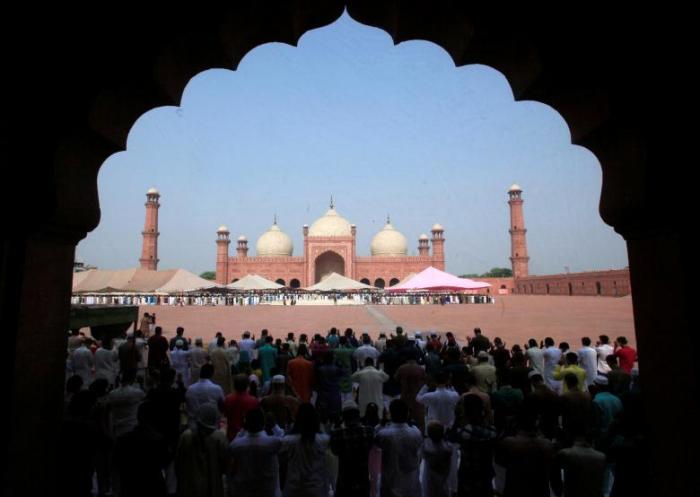Pakistani court cites Sharia law to validate abduction, marriage of 13-year-old Christian girl to Muslim man

A Pakistani court cited Sharia law to validate the marriage of a 13-year-old Christian girl to a 44-year-old Muslim man who abducted her earlier this month.
Arzoo Raja’s parents bowed to touch the feet of Pakistani police officers, begging to see their daughter who was kidnapped by Ali Azhar from their home on Oct. 13, but they refused.
Instead, the high court of Pakistan’s Sindh province changed their daughter’s name to the more Islamic “Arzoo Fatima” and announced that she “understood and realized that Islam is a universal religion,” International Christian Concern reported.
The last time Raja’s family heard from her was a July phone call, three months after Azhar first kidnapped her, International Christian Concern’s South Asia Regional Manager, Will Stark, told The Christian Post. Azhar also has children near Raja’s age.
When she appeared in the courtroom yesterday, police refused to let her run to her parents, Morning Star News reported.
“Raja’s case isn’t a one-off decision. It’s part of a pattern,” Stark said. “Conversion to Islam is being used by the courts to circumvent the secular law.”
In Pakistan, child marriage combined with a “conversion” to Islam commonly covers up rape, he said. Another girl in a similar situation, Maira Shahbaz was abducted and gang-raped. Her captor told her that if she didn’t back him with her court testimony, he would release video of the rape online, Stark said. It’s likely something similar happened to Raja.
Islamic law keeps child rapists from facing justice, he said. Pakistani courts decide cases based on secular, Islamic and ethnic law. Sindh province law forbids marriage to girls younger than 18. But under Islamic sharia law a girl can be married after her first period, Stark said. It happens to about 1,000 Pakistani women each year, a study from the Pakistan Movement for Solidarity and Peace said.
“It’s an issue that’s felt by every minority woman in the country,” he said. “This issue is on their minds all the time. At any moment they could get taken away, forcibly converted and forcibly married and the state wouldn’t protect them.”
Raja was forced to officially convert to Islam by signing a piece of paper, he said. She might have been tortured, threatened, tricked or drugged into signing it. Once she did, the courts could apply Islamic religious law to her case. In Raja’s case, the conversion shouldn’t be legally valid.
“According to Pakistan law, you shouldn’t be able to convert without your parents’ permission until you’re 18,” Stark said. “Arzoo is 13.”
That point probably won’t matter to the court, he said. Although most government officials in Pakistan don’t support Islamic child marriage, they can be bullied by radical Muslim groups. These groups often murder judges when they feel Islam has been shamed.
Pakistan’s signature on U.N. documents that promise to end child marriage means little, Stark said.
“They know if they inject religion into a case, they can play on religious biases to cover up their crimes or retain custody. It’s a concerning update because two cases from the same court have held this way,” he said.
To fight the radical Islamists who support child marriage, people around the world can sign petitions for Raja’s return. Pakistan’s government depends on international aid to survive, so its government can be responsive to international pressure, he said.
People can sign a petition for Shahbaz and email the U.S. Embassy in Pakistan at [email protected] about Raja.
“That sort of outside pressure is helpful,” Stark said. “We need to keep pressure on Pakistan so the scales of justice are even.”



























